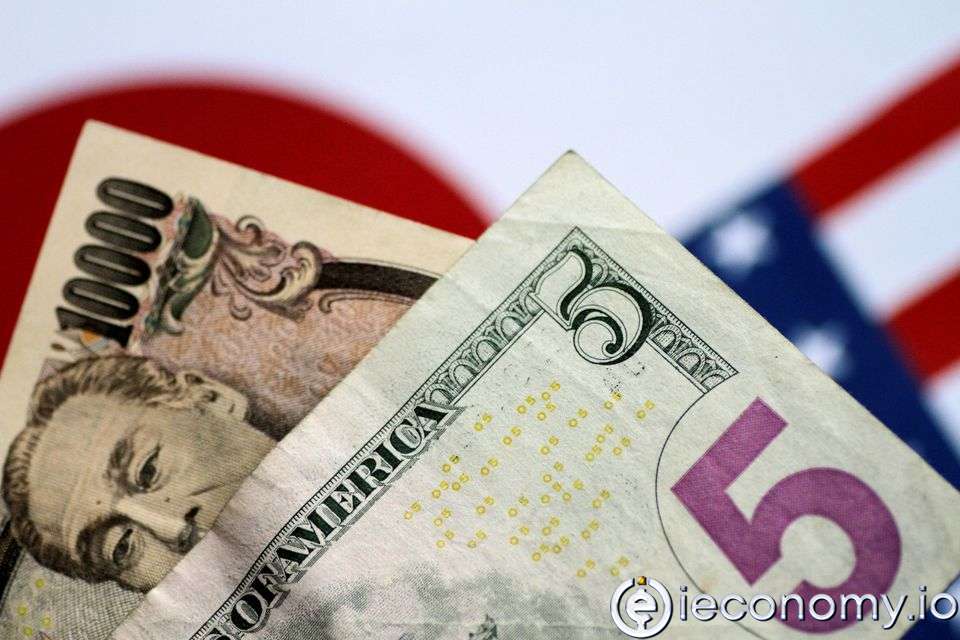9505
0
Dollar at 24-year high against yen after US yields rise
The dollar hit a 24-year high against the yen on Wednesday, surpassing levels that prompted Japanese authorities to intervene

Yazar: Charles Porter
Yayınlanma: 12 Ekim 2022 16:18
Güncellenme: 18 Şubat 2026 04:58
Dollar at 24-year high against yen after US yields rise
The dollar hit a 24-year high against the yen on Wednesday, surpassing levels that prompted Japanese authorities to intervene last month, while sterling investors pondered the Bank of England's plans.
The dollar rose as high as 146.39 yen in early Asian trade, reaching that level for the first time since August 1998. It was last up 0.2% at 146.18. Japanese authorities carried out the first yen buying intervention since 1998 on Sept. 22 as the yen weakened to 145.90 per dollar. Authorities have reiterated their readiness to take appropriate steps to counter excessive currency movements, although it is less clear whether they want to maintain certain levels. "Given the dollar's strong run, it is possible that the Bank of Japan may try to slow the dollar-yen's upward momentum by defending the yen at a higher level than before, rather than defending it at a specific level," said Alvin Tan, head of Asian currency strategy at RBC Capital Markets. The Japanese currency is particularly sensitive to the spread between US and Japanese long-term bond yields. The yield on the benchmark 10-year Treasury note rose to a 14-year high of 4.006% overnight, while the equivalent Japanese government bond yield was pegged near zero by the Bank of Japan. The other main focus of the day was sterling, which fell to a two-week low of $1.0925 in early Asian trade after Bank of England (BoE) Governor Andrew Bailey reiterated that the central bank will end its emergency bond-buying program on Friday and told pension fund managers to finish rebalancing their positions by then. It recovered slightly and was up 0.5% on the day to $1.1015 after a report in the Financial Times said the BoE signaled to lenders privately that it was ready to extend bond purchases. "Too confusing?" Jordan Rochester, executive director of FX strategy, summed up the situation in comments sent via email. "Either way this is a stop gap and will eventually end, giving GBP some breathing space but not a reason in itself to extend GBP. In the longer term it's only a matter of time before support fades and GBP turns bearish," Rochester added. The emergency program was a response to the turmoil in Britain's government bond market following the mini-budget, which sent sterling to a record low of $1.0327. Data released on Wednesday showing that the UK economy shrank by 0.3% in August was hit by weakness in manufacturing and maintenance work at North Sea oil and gas fields, leading to confusion. Follow Global Economic Developments on Social Media! Click here to follow Ieconomy official Facebook account! Click here to follow Ieconomy official Instagram account! Click here to follow Ieconomy official Twitter account!İLGİLİ HABERLER





European stocks soared and focus shifted to German retail sales after Powell's speech!

Forex Signal For TRY/USD: Inflation Slowdown in November.

Forex Signal For GBP/USD: Bullish Trend Still Not Breaking While Recovery Continues.

Forex Signal For EUR/USD: Starry US Data Points to Higher Fed Increases.

Forex Signal For BTC/USD: Downside Continues as Bitcoin Recovery Moves Less.
En Popüler Haberler
Yorum Yap
Yorumlar
Henüz yorum yapan yok! İlk yorumu siz yapın...